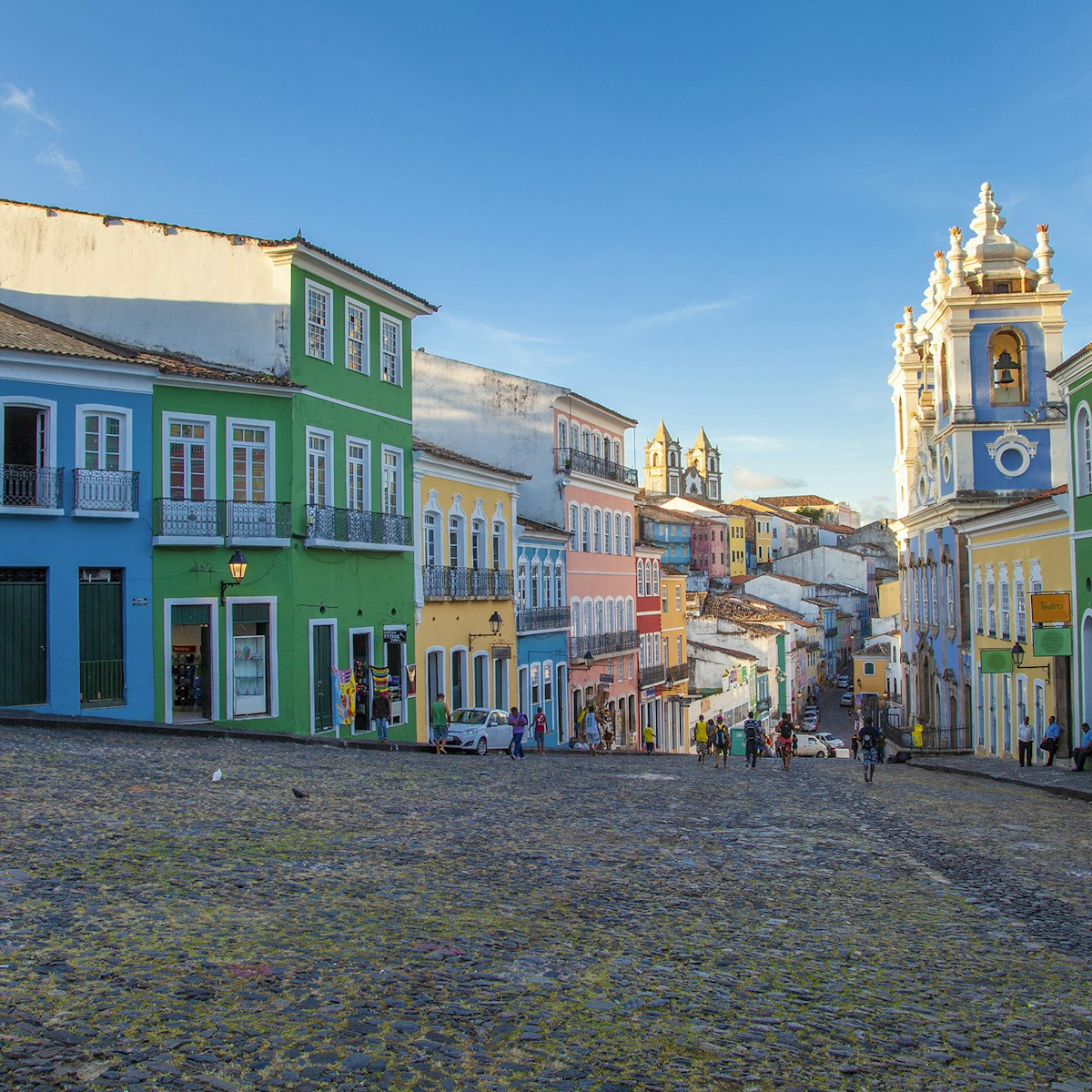The history of Praça da Sé reveals intriguing details about Salvador's development. From 1552 to 1933, the square was the site of the grand Sé Primacial cathedral, overlooking the bay. Sadly, the cathedral and its cemetery were razed in the '30s (roped-off remnants remain today) part of a plan to make wider avenues where streetcars could travel. By the 1950s, Praça da Sé was the home of Salvador's main bus terminal. Today, the plaza sees mostly tourist traffic.
Lonely Planet's must-see attractions

0.06 MILES
The centerpiece of the Cidade Alta is the Pelourinho, a Unesco-declared World Heritage site of colorful colonial buildings and magnificent churches. As…

3.3 MILES
This famous 18th-century church, located a few kilometers north of Comércio on the Itapagipe Peninsula, is the source of the fitas (colored ribbons) you…

2.95 MILES
This excellent nautical museum in Forte de Santo Antônio da Barra contains relics and displays from the days of Portuguese seafaring, plus exhibits on the…

0.07 MILES
Holding one of Bahia’s most important collections, the Museu Afro-Brasileiro exhibits wood carvings, baskets, pottery and other artwork and crafts linking…

Forte de Santo Antônio da Barra
2.95 MILES
Built in 1698, Bahia’s oldest fort is more commonly called the Farol da Barra for the lighthouse (South America’s oldest) within its walls. In addition to…

0.14 MILES
The beautifully restored, art deco Elevador Lacerda connects the Cidade Alta with Comércio via four elevators traveling 72m in 30 seconds. The Jesuits…

0.91 MILES
This well-preserved, 18th-century complex served as a transfer point for sugar shipments: legend says it's haunted by the ghosts of murdered slaves. Today…

0.22 MILES
The original 1861 Customs House, where slaves were housed when they arrived in Salvador, was partly destroyed in a fire in 1986. After reconstruction, it…
Nearby Salvador attractions
0.04 MILES
The story of Salvador's world-famous Carnaval is told through wonderfully evocative archival video and photographs at this museum which opened in 2018…
0.05 MILES
The Catedral Basílica dates from 1672 and is a marvelous example of Jesuit architecture. The interior is elegant and simple, with marble-covered walls and…
0.06 MILES
The centerpiece of the Cidade Alta is the Pelourinho, a Unesco-declared World Heritage site of colorful colonial buildings and magnificent churches. As…
0.07 MILES
Holding one of Bahia’s most important collections, the Museu Afro-Brasileiro exhibits wood carvings, baskets, pottery and other artwork and crafts linking…
0.07 MILES
After sitting, unused, for almost three years, the 1874 funicular railway Plano Inclinado Gonçalves reopened in 2014. The restored line connects Comércio…
6. Museu de Arqueologia e Etnologia
0.07 MILES
Below the Museu Afro-Brasileiro (one admission ticket gets you into both), the Museu de Arqueologia e Etnologia exhibits indigenous Brazilian pottery,…
0.08 MILES
A colorful intersection of vendors, tourists, capoeiristas and colorful locals, the Terreiro de Jesus is a historic site of religious celebrations, and is…
8. Faculdade de Medicina Building
0.08 MILES
A Portuguese prince, upon arrival in Salvador in 1808, founded a school of surgery here that was later named the Bahia School of Medicine.

